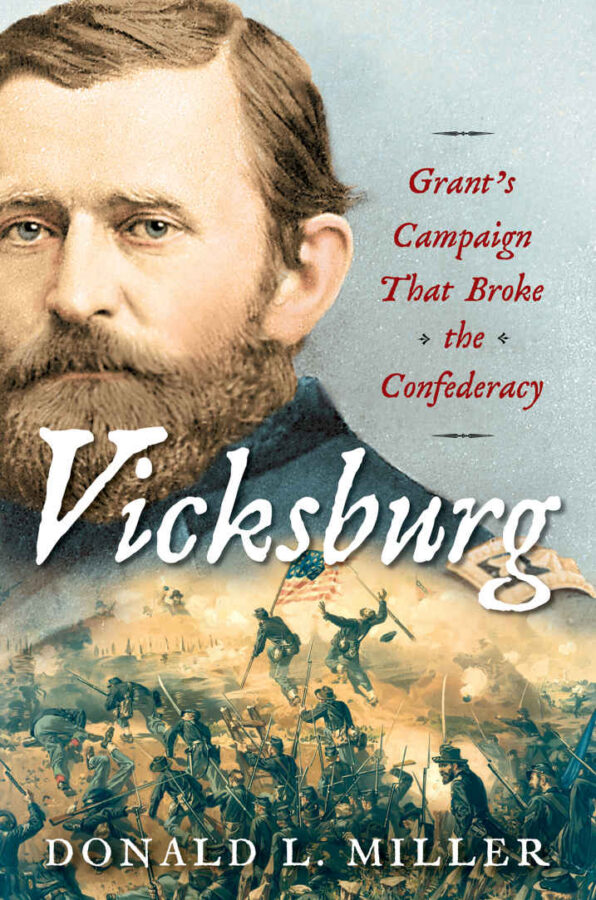Confederate General Leonidas Polk: Louisiana’s Fighting Bishop by Cheryl H. White. The History Press, 2013. Paper, ISBN: 1609497376. $19.99.
 In 1861, Leonidas Polk seemed poised to establish himself as one of the foremost figures to enter the ranks of the newly formed Confederate States of America. As Episcopal Bishop of Louisiana and a graduate in the Class of 1827 of the United States Military Academy at West Point, he boasted a set of credentials that few could appear to match. Polk also enjoyed the boon of friendship with the president of the Confederacy, Jefferson Davis. Yet, through the course of the Civil War, Leonidas Polk experienced controversy and proved problematic to superiors and success in the vital Western Theater of the conflict. In any event, by the time a Union artillery shell closed his earthly sojourn atop Pine Mountain, Georgia, during the Atlanta Campaign of 1864, the prelate and warrior had followed a path that covered many of the significant events of the western campaigns.
In 1861, Leonidas Polk seemed poised to establish himself as one of the foremost figures to enter the ranks of the newly formed Confederate States of America. As Episcopal Bishop of Louisiana and a graduate in the Class of 1827 of the United States Military Academy at West Point, he boasted a set of credentials that few could appear to match. Polk also enjoyed the boon of friendship with the president of the Confederacy, Jefferson Davis. Yet, through the course of the Civil War, Leonidas Polk experienced controversy and proved problematic to superiors and success in the vital Western Theater of the conflict. In any event, by the time a Union artillery shell closed his earthly sojourn atop Pine Mountain, Georgia, during the Atlanta Campaign of 1864, the prelate and warrior had followed a path that covered many of the significant events of the western campaigns.
In crafting this project, historian Cheryl White, whose previous efforts have resided substantially outside of the realm of the American Civil War, saw the opportunity to consider the ways in which the man’s religious contributions and context informed his more well-known martial journey in a re-examination of the Bishop-General’s life and career. “Therefore,” she explains, “this work seeks to more directly probe Polk’s complexity by looking at him as both a religious and military figure” (15). The result of the author’s endeavor in this instance is a concise volume. However, the project’s strength in brevity is also a weakness, in allowing only for the broadest outline, rather than a systematic analysis. Frequently, the writer is able only to offer insights or pose questions without the possibility for a deeper and richer exploration of them. Given the nature of the work, White was bound to confront difficulties in reaching the depth of review she desired in her search for understanding the “complexity” of her subject.
White’s work constitutes a favorable review of Leonidas Polk. Understandably, she prefers that readers accept the Bishop-General as belonging most appropriately to the nineteenth century, thus allowing him to become inoculated from modern criticisms or critiques. Even so, she seems to have difficulty reconciling a religious figure that championed missionary efforts in church-building and education to slave-ownership and service in the Confederacy. The apparent discomfort that the same man who could follow his ministerial callings with such verve also concerned himself with secular matters leads to moments of confused logic. For instance, the author argues, “Due to his training at West Point Academy, he saw his duty as citizen first to the state of Louisiana and only secondarily to the federal government” (58). Certainly, Polk’s decision to leave military service early in favor of the ministry would lend itself to the diminishing of the institution’s nationalizing influence on him, but it is doubtful that his “training at West Point Academy,” lessened his attachments to country and enhanced them regarding his native state.
Perhaps most challenging, especially in the chapters relating to the war, are those points where the chronology of events are imprecise or identifications unclear, such as occurs when Polk baptizes “John Q. Hood” in 1864 before the narrative shifts to events related to Belmont (1861) and Stones River (1862-1863) (92). Factual questions emerge, including the direct equivalence of “neutrality” in Missouri and Kentucky and the correlation of Polk’s communications with his wife to military events at Forts Henry and Donelson in Chapter 6, or the conclusions reached regarding the Chickamauga Campaign in Chapter 7, where “William Rosecrans managed to escape with a large portion of his army” and Bragg has “another opportunity” to “blame Polk” (93).
Individuals interested in a comprehensive approach to the subject will have to look at earlier works by Leonidas Polk’s son, published in 1893, or a biography Joseph H. Parks produced in 1962, and in reprint, each of which present challenges of their own to those familiar with the Bishop-General’s record. In the meantime, Cheryl White has produced a sincere and sympathetic treatment of Polk. Her work points once more to the role this enigmatic figure played in peace and war, which is no inconsequential achievement of its own.
Brian Steel Wills is the Director of the Center for the Study of the Civil War Era and Professor of History at Kennesaw State University in Kennesaw, Georgia.
